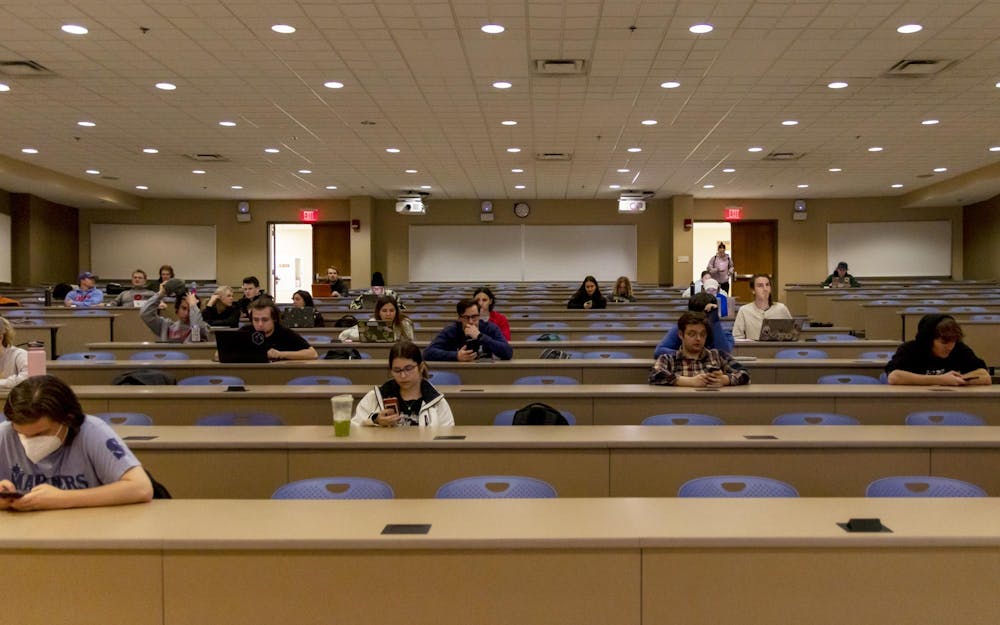Our phones are the killers of conversation.
They distract us from being present in the moment, decrease our ability to connect emotionally and destroy our creative and critical thinking. The rise of social media, artificial intelligence (AI) and overall technology use has hindered our generation’s ability to converse and maintain social interaction.
During my time on campus this year, I have noticed how conversations hardly ever surpass surface level. They all consist of “What’s your name, major, year, hall?” and then fizzle out into awkward silence and thoughts of escape. You glance at the other person awkwardly, maybe make a feeble attempt at asking what clubs they are in, and then silence ensues and you go your separate ways. It takes a special, fated connection for conversations to lead to real friendship.
The first semester on campus is supposed to be the time of making friends and finding your place. However, cell phones and AI have reduced our ability to make creative efforts at conversation.
When texting, one does not have to be present in the conversation. They can take however much time they need in order to craft a worthy response. In person conversations require immediate replies and real human interaction. As we get increasingly used to just “hearting” a message over text whenever we have nothing else to say, we forget how to actually end a real conversation. Shortcuts such as this inhibit our ability to hold true face-to-face conversations.
The presence of smart phones in human conversations altogether ruins emotional capacity and value of the interaction. According to a study done by Berkeley, the presence of a cell phone in a social interaction does two things: it lowers the value of what you discuss, because you do not want to interrupt important conversations with the chance of being on your phone, and it “decreases empathetic connection.”
Conversations are less genuine and hold less connection, leading to them having no value.
Texting is not the only issue — the alarming rise of AI is also harming social interaction. As people talk with AI, they begin to form emotional connections to it. Platforms such as character.ai or other chatbots stimulate real-world interactions and start to replace the actual face-to-face interactions.
Studies from OpenAI itself have shown those who have conversations with artificial intelligence for extended periods of time report higher levels of loneliness. AI also makes online conversations easier because there are automated, expected responses. Yet in real life, we can’t exactly expect what the real person in front of us is going to say.
Social media can create common factors between people and conversations can originate from shared love for media or other internet relations. However, our conversations should not center around technology, because as the aforementioned study stated, they remove the chance of a true emotional connection. There are numerous other ways to spark human connection: shared hobbies, history, hair color and more. If the only shared factor between two people is the same internet interests, then there is not much basis for true emotional connection.
As time and technology have advanced, we have let the internet control our lives. It’s no longer an accompanying tool, but a necessity we seem unable to live without. This has become a hindrance to our everyday lives, especially social interaction.
As our generation grows, moves further into college, and eventually into the career world, the online world will only weaken our skills in the real world. Real conversations can be challenging, but if we don't challenge ourselves, genuine conversations and true friendship will become a lost art.
Enjoy what you're reading?
Signup for our newsletter
Layla Norris is a first-year student double majoring in political science and journalism, with a minor in history. Alongside writing for The Miami Student, she is involved with Stage Left, Women in Law and MU Model UN.




